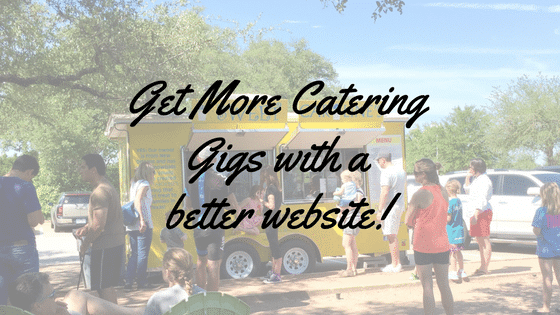
Get More Catering Gigs with a better website!

Get More Catering Gigs with a better website!
Social Media is the darling of web marketing currently, and even more so with Food Trailers and Food Trucks that are on a shoestring budget.
But I think there is a case to be made that your website (yes, the old fashion website!) is equally as important to your marketing than social media.
Here are the reasons…
1) SEO (Search engine optimization)
If you have a website people can search for you on google.
Even if someone types your company name and your Facebook or Twitter pages pull up, that isn’t enough!
What you want is for your page to pull up when someone searches Asian food truck catering, or food trucks your zip code or part of town.
A website that has pages with catering info, food served, location, chef bio, etc., will be indexed by google and in turn more attention from people who are searching for your exact services.
Tip:
Don’t pay someone to do SEO when starting off, just google best practices. If you exhaust those efforts, then look to hire an expert.
2) Photos, photos and more photos!
With a website you can tell a story about your food with photos. Customers can’t taste or smell your food online, but having mouthwatering photos is the next best thing.
Tip:
Use a professional, not your iPhone! Barter for services if you need to, it’s well worth the investment!
3) Create personality, build your brand and design your own style!
With a static Twitter or Facebook interface, there is very little you can do to add your own personal touch to the design or layout. However, on a website you can have a section about the chef, or add links to menus and photos.
Tip:
Use a website builder where you can control the content, so you can tweak the page and keep cost low. Most site builders nowadays will offer a Responsive Web Design, which adapts your website to desktop or phone viewing.
Tip:
Need a graphic designer for your website? try Fiverr.com for low-cost options to outsource the work.
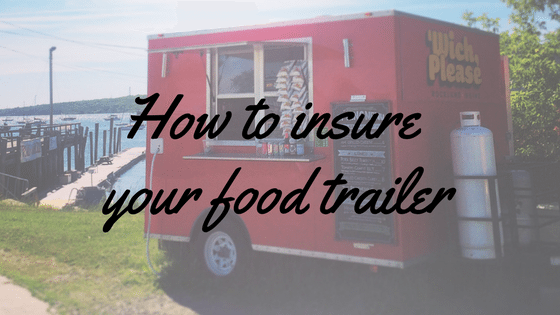

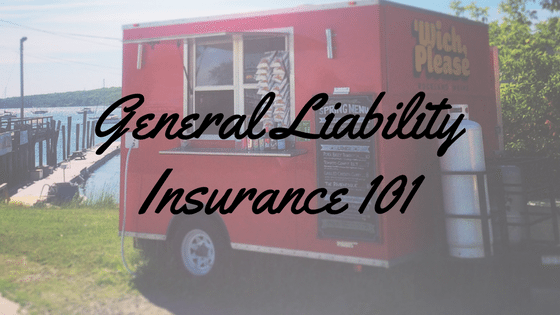

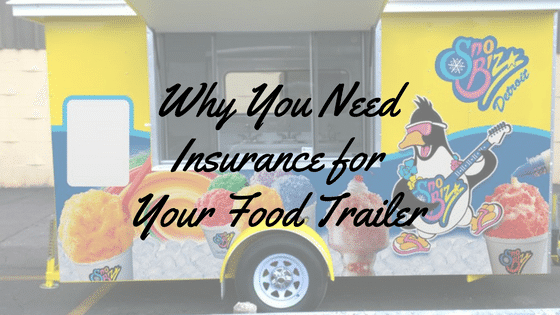

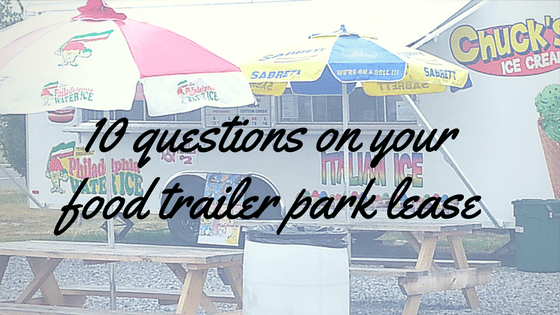
 ou sign a commercial food trailer park lease, you are entering into a relationship where both parties have responsibilities to each other. This is one contract you will want to thoroughly read! It’s always best to ask questions ahead of time on areas that aren’t clear.
ou sign a commercial food trailer park lease, you are entering into a relationship where both parties have responsibilities to each other. This is one contract you will want to thoroughly read! It’s always best to ask questions ahead of time on areas that aren’t clear. Joel Paprocki, CIC, CRM, CPCU is founder of Insure My Food. Joel has over 20 years of experience in the insurance industry. He is passionate about helping food entrepreneurs navigate insurance and risk management with confidence. He holds all three top industry designations: Certified Insurance Counselor, Certified Risk Manager, and Chartered Property and Casualty Underwriter. He has served over 5,000 clients in the food industry, including restaurants, food truck, cateriers, If you are looking for a reliable, experienced, and specialized insurance partner, please contact us.
Joel Paprocki, CIC, CRM, CPCU is founder of Insure My Food. Joel has over 20 years of experience in the insurance industry. He is passionate about helping food entrepreneurs navigate insurance and risk management with confidence. He holds all three top industry designations: Certified Insurance Counselor, Certified Risk Manager, and Chartered Property and Casualty Underwriter. He has served over 5,000 clients in the food industry, including restaurants, food truck, cateriers, If you are looking for a reliable, experienced, and specialized insurance partner, please contact us.